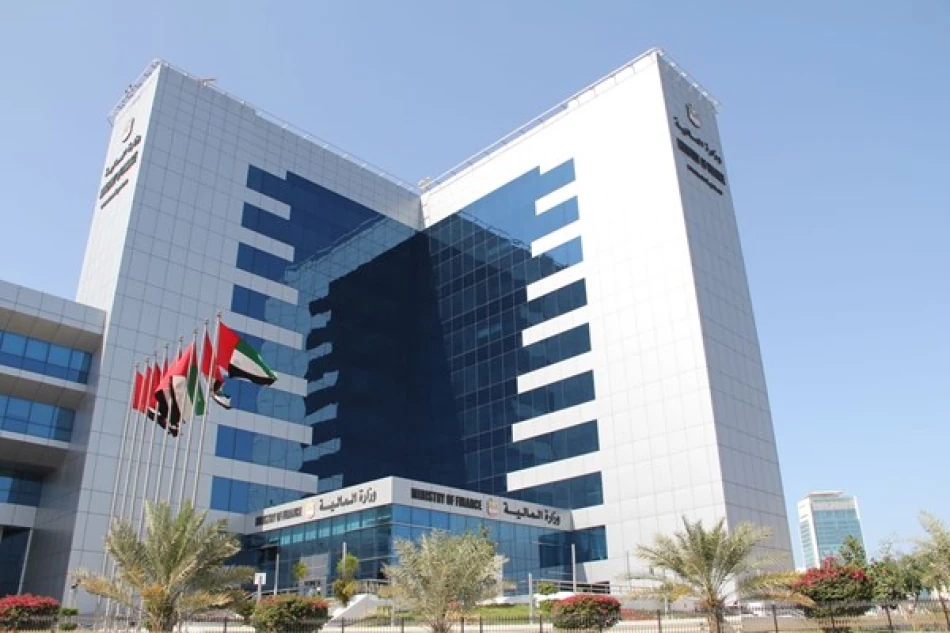
Ministry Unveils Flexible 2027-2029 Budget Plan Focused on Sustainability and AI Integration
UAE Launches Revolutionary AI-Powered Budget System, Signaling Major Shift in Government Financial Strategy
The UAE Ministry of Finance has unveiled its ambitious 2027-2029 federal budget cycle, marking a fundamental transformation from traditional annual planning to an AI-driven strategic financial instrument. This initiative, aligned with the "We Are the Emirates 2031" vision, represents the most significant overhaul of government financial management in the region and positions the UAE as a global pioneer in smart fiscal governance.
Digital Revolution in Government Finance
The new budget framework leverages artificial intelligence and advanced analytics to revolutionize how the UAE allocates its resources. Sheikh Maktoum bin Mohammed bin Rashid Al Maktoum, Deputy Prime Minister and Minister of Finance, emphasized that this system transforms the budget from a mere resource allocation tool into "a strategic engine for achieving major national goals."
The technological leap is staggering: budget preparation steps have been reduced from 50 to just 10, while government procurement cycles have been slashed from 60 days to under 6 minutes. This represents a 99.99% efficiency improvement that could serve as a blueprint for governments worldwide struggling with bureaucratic inefficiencies.
Strong Financial Foundation Supports Ambitious Vision
The UAE enters this new phase from a position of remarkable fiscal strength. Over four previous strategic cycles, the federal budget totaled approximately 900 billion dirhams, while maintaining domestic public debt at a conservative 62.1 billion dirhams by June 2025. Federal government assets have grown to 464.4 billion dirhams by end-2024, demonstrating the country's robust financial position.
Comparative Regional Context
This financial stability contrasts sharply with many regional peers facing fiscal pressures. While countries like Saudi Arabia and Egypt grapple with higher debt-to-GDP ratios, the UAE's conservative debt management provides the flexibility to invest aggressively in future-oriented sectors without compromising fiscal sustainability.
Strategic Priorities Signal Long-Term Vision
The 2027-2029 budget cycle prioritizes sectors directly impacting citizens and residents: education, healthcare, social benefits, and essential government services. This focus aligns with the UAE's "Centennial 2071" objectives, positioning the nation as a global leader in quality of life and human development.
Minister of State for Financial Affairs Mohammed bin Hadi Al Hussaini highlighted that the ministry has evolved from a supervisory entity to an enabling institution, supporting federal agencies in delivering high-quality services through integrated digital systems.
Global Implications for Smart Governance
The UAE's approach offers valuable lessons for other nations seeking to modernize their fiscal systems. By integrating AI into budget planning, the country is creating predictive scenarios that enable proactive rather than reactive governance—a capability that proved crucial during the COVID-19 pandemic and will be essential for navigating future global uncertainties.
Investment and Market Perspective
For investors and financial markets, this development signals the UAE's commitment to maintaining its competitive edge in the global economy. The emphasis on digital transformation and AI integration suggests continued investment opportunities in technology sectors, while the focus on fiscal sustainability reinforces confidence in the UAE's long-term economic stability.
Setting New Standards for Government Efficiency
The transformation from a traditional budgeting process to an AI-powered strategic tool represents more than administrative reform—it's a fundamental reimagining of how governments can operate in the digital age. By reducing bureaucratic friction and accelerating decision-making, the UAE is creating a model that other nations will likely study and adapt.
This initiative positions the UAE not just as a regional financial hub, but as a global pioneer in smart governance, potentially attracting international partnerships and investment in government technology solutions. The success of this system could establish new international standards for public financial management in the digital era.
Most Viewed News

 Layla Al Mansoori
Layla Al Mansoori






